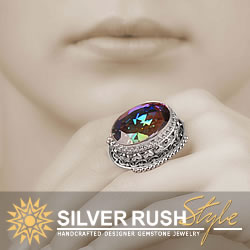
Hot Rod Lincoln
This article needs additional citations for verification. (April 2021) |

| "Hot Rod Lincoln" | |
|---|---|
 Label of the original 1955 single | |
| Single by Charlie Ryan and the Livingston Bros. | |
| B-side | "Hank Williams Goodbye" |
| Released | 1955 |
| Genre | Rock and roll, rockabilly |
| Length | 2:57 |
| Label | Souvenir (SOUV-101) |
| Songwriter(s) | Charlie Ryan |
| "Hot Rod Lincoln" | ||||
|---|---|---|---|---|
 | ||||
| Single by Commander Cody and His Lost Planet Airmen | ||||
| from the album Lost in the Ozone | ||||
| B-side | "My Home in My Hand" | |||
| Released | March 1972 | |||
| Genre | Rock and roll | |||
| Length | 2:40 | |||
| Label | Paramount | |||
| Songwriter(s) | Charlie Ryan | |||
| Commander Cody and His Lost Planet Airmen singles chronology | ||||
| ||||
"Hot Rod Lincoln" is a song by American singer-songwriter Charlie Ryan, first released in 1955. It was written as an answer song to Arkie Shibley's 1950 hit "Hot Rod Race" (US #29).

It describes a drive north on US Route 99 (predecessor to Interstate 5) from San Pedro, Los Angeles, and over "Grapevine Hill" which soon becomes a hot rod race that ends with serious consequences.

Song details
The car race is described between two hot rod cars, the narrator's Ford Model A (with a Lincoln motor) and a Cadillac. The song says the Ford's "got 12 cylinders", overdrive, a four-barrel carburetor, 4.11:1 gear ratio, and safety tubes. The narrator ends up being arrested by the police for his high-speed driving and describes the exasperation of his father: "He said, 'Son, you're gonna drive me to drinkin' / If you don't quit drivin' that hot rod Lincoln!'"

Ryan's original rockabilly version of the song was released in 1955 through Souvenir Records under the artist name Charley Ryan and the Livingston Bros.[1] A second version was released in 1959 through Four Star Records, credited to Charlie Ryan and the Timberline Riders.[2] Ryan based the description of the eponymous car on his own hot rod, built from a 1948 12-cylinder Lincoln chassis shortened two feet, with a 1930 Ford Model A body fitted to it.[citation needed] Ryan raced his hot rod against a Cadillac sedan driven by a friend in Lewiston, Idaho, driving up the Spiral Highway (former U.S. Route 95 in Idaho) to the top of Lewiston Hill.[3] Some say he incorporated elements from this race in his lyrics to "Hot Rod Lincoln", but changed the setting to Grapevine Hill (a long, nearly straight grade up to Tejon Pass, near the town of Gorman, California) to fit it within the narrative of "Hot Rod Race".[citation needed]

Johnny Bond version
Another version of "Hot Rod Lincoln" was recorded by country musician Johnny Bond and released in 1960 through Republic Records, with Bond's lyrics changing the hot rod's engine from a V12 to a V8[citation needed], among other changes. It reached number 26 on the Billboard Hot 100 in August 1960.[4] Bond released a sequel in the same year called "X-15", set in 1997, about an air race in an X-15 plane.[5]

Commander Cody version
A 1971 version, by country rock band Commander Cody and His Lost Planet Airmen on their album Lost in the Ozone, became the most successful version of "Hot Rod Lincoln", reaching No. 9 on the Billboard Hot 100, No. 28 Adult Contemporary, No. 7 in Canada,[6] and was ranked No. 69 on the U.S. Billboard Year-End Hot 100 singles of 1972.[7] The song peaked at number 45 in Australia.[8] This version maintained most of the lyrical changes from Johnny Bond's version but changed them further while maintaining the original story.

Chart history
Weekly charts
- Charlie Ryan
| Chart (1960) | Peak position |
|---|---|
| U.S. Billboard Hot 100[9] | 33 |
| U.S. Billboard Country | 14 |
- Johnny Bond
| Chart (1960) | Peak position |
|---|---|
| U.S. Billboard Hot 100[9] | 26 |
| U.S. Cash Box Top 100[10] | 25 |
- Commander Cody
|
Year-end charts
|
Other versions
In addition to Johnny Bond and Commander Cody and His Lost Planet Airmen, many other artists have recorded "Hot Rod Lincoln" in the decades since its original release, including:

- Pat Travers, on Pat Travers (1976)[citation needed]
- Asleep at the Wheel, on Western Standard Time (1988); this version reached no. 65 on Billboard's Hot Country Songs[15]
- All, on Allroy's Revenge (1989)[16]
- Jim Varney, on The Beverly Hillbillies soundtrack (1993)[17]
- Les Claypool, on Crank It Up (2002)[citation needed]
- Roger Miller, on A Man Like Me: The Early Years of Roger Miller (2006)[18]
- Lawrence Ramsay, on Blowin' Cash (2010)[citation needed]
- Chris Casello, on Chris Casello Trio (2013)[citation needed]
- Bill Kirchen (lead guitar in Commander Cody and His Lost Planet Airmen) on Hot Rod Lincoln Live (1997)
- George Thorogood & the Destroyers
References
- ^ "Charley Ryan And The Livingston Bros. - Hot Rod Lincoln". 45cat.com. Retrieved April 29, 2021.
- ^ "Charlie Ryan And The Timberline Riders - Hot Rod Lincoln". 45cat.com. Retrieved April 29, 2021.
- ^ Johnson, David (June 27, 2003). "That hot rod Lincoln". Lewiston Morning Tribune. Retrieved December 11, 2020.
- ^ Whitburn, Joel (2003). Top pop singles, 1955-2002. Record research, Inc. p. 69. ISBN 0-89820-155-1.
- ^ "Johnny Bond". Rocky-52.net. Retrieved April 29, 2021.
- ^ a b "Item Display - RPM - Library and Archives Canada". Collectionscanada.gc.ca. June 3, 1972. Retrieved April 12, 2021.
- ^ "Top 100 Hits of 1972/Top 100 Songs of 1972". Archived from the original on April 27, 2017. Retrieved September 27, 2016.
- ^ Kent, David (1993). Australian Chart Book 1970–1992 (illustrated ed.). St Ives, N.S.W.: Australian Chart Book. p. 18. ISBN 0-646-11917-6.
- ^ a b c Joel Whitburn's Top Pop Singles 1955–1990 - ISBN 0-89820-089-X
- ^ "Cash Box Top 100 Singles, September 10, 1960". Cashboxmagazine.com. Retrieved April 29, 2021.
- ^ "flavour of new zealand - search listener". Flavourofnz.co.nz. Retrieved April 29, 2021.
- ^ Whitburn, Joel (1993). Top Adult Contemporary: 1961–1993. Record Research. p. 56.
- ^ "Cash Box Top 100 5/27/72". Cashboxmagazine.com. Retrieved April 29, 2021.
- ^ "Top 100 Hits of 1972/Top 100 Songs of 1972". Musicoutfitters.com. Retrieved April 29, 2021.
- ^ Whitburn, Joel (2013). Hot Country Songs 1944–2012. Record Research, Inc. p. 28. ISBN 978-0-89820-203-8.
- ^ Ankeny, Jason. "Allroy's Revenge". Allmusic. Retrieved March 10, 2015.
- ^ "The Beverly Hillbillies - Original Soundtrack | Songs, Reviews, Credits | AllMusic". AllMusic. Retrieved July 12, 2016.
- ^ "Bear Family Records".
External links
- Rockabilly Hall of Fame — Documents the history of the song through dozens of covers, including lyrics.
- www.hot-rod-lincoln.com — The official site of Charlie Ryan
- Commander Cody and His Lost Planet Airmen - Hot Rod Lincoln on YouTube
See what we do next...
OR
By submitting your email or phone number, you're giving mschf permission to send you email and/or recurring marketing texts. Data rates may apply. Text stop to cancel, help for help.
Success: You're subscribed now !
